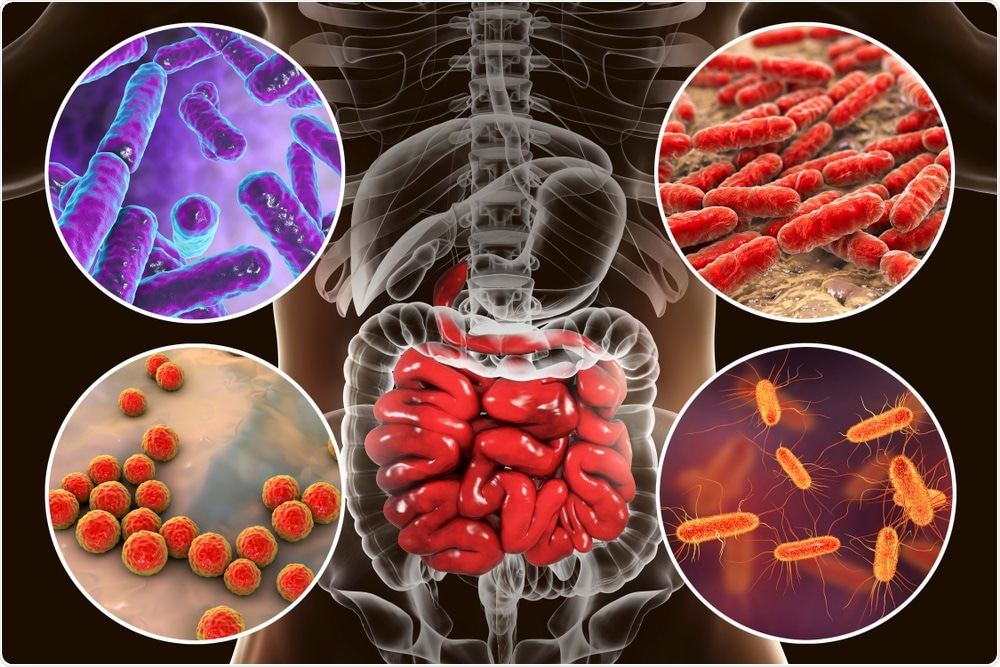Eran Blacher bagged the NOSTER & Science Microbiome Prize 2021 for his work in highlighting the relationship between the microbiome and neurodegenerative diseases like Amyotrophic Lateral Sclerosis (ALS) and Alzheimer’s disease (AD).

Gut Microbiome. Image Credit: Kateryna Kon/Shutterstock.com
The results of the research offered a new understanding of the “gut-brain axis” and show that harnessing the microbiome and its related metabolic pathways can provide a valuable means to treat these and potentially other deadly neurological disorders.
Several million people across the globe suffer from neurodegenerative disorders, but the main reason remains uncertain. Research works continually reinstate the link between the human brain and the gut microbiome, which influences the activity of the brain in numerous ways.
For instance, small molecule metabolites produced by commensal bacteria get absorbed into the bloodstream and reach the brain, where they modulate the brain cell activity, including that of astrocytes, neurons, and microglia.
Blacher and co-workers used a mouse model to investigate the role of the microbiome and its metabolites in ALS—a progressive neurodegenerative neuromuscular disorder affecting nerve cells in the spinal cord and brain.
The researchers depleted the microbiome of ALS-prone Sod1-Transgenic (Sod1-Tg) mice by performing wide-spectrum antibiotic treatment and discovered dysbiosis and microbiome-driven modifications in metabolite configuration that precede clinical ALS motor symptoms, along with 11 distinct microbial strains correlated with disease severity.
Probiotic treatment of Sod1-Tg mice with the gut microbe Akkermansia muciniphila or its associated metabolite, nicotinamide, reduced ALS symptoms by considerably improving motor function and restored distorted spinal cord gene expression patterns.
While conducting a preliminary observational study in humans, the researchers discovered similar, substantial changes in the microbiome composition and function of ALS patients, linked with low nicotinamide levels in cerebrospinal fluid and serum.
We posit that these findings are linked to our previous observations in mice and may lay the foundation of a larger clinical study in the future.”
Eran Blacher, Department of Neurology and Neurological Sciences, Stanford University
Source:
Journal reference:
Blacher, E (2021) Can microbes combat neurodegeneration? Science. doi.org/10.1126/science.abi9353.